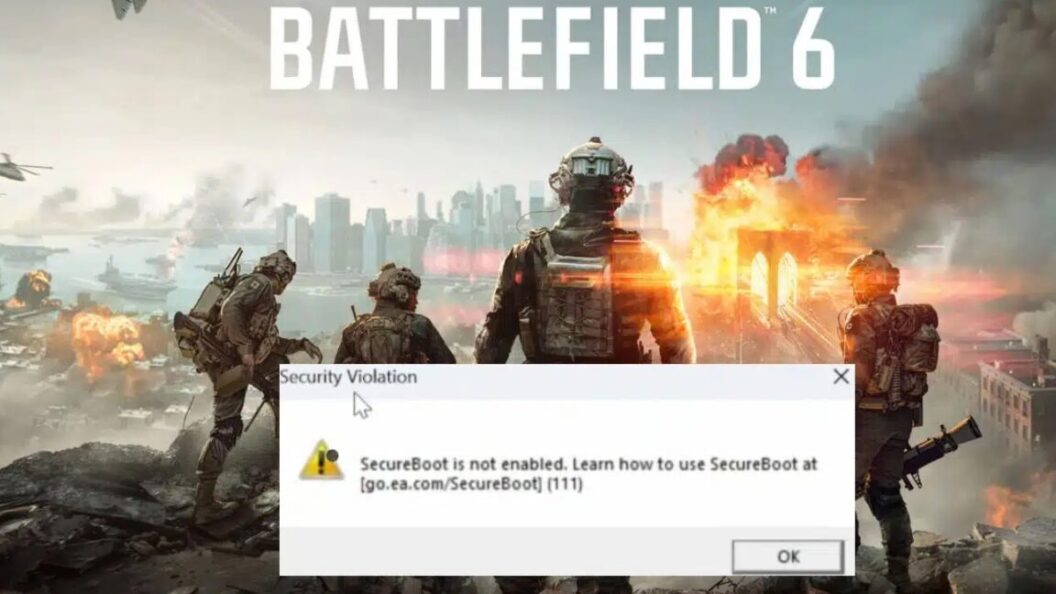EA’s Battlefield 6 Open Beta Faces Backlash Over Secure Boot Requirement
Introduction
Electronic Arts (EA) recently announced that players participating in the open beta for its forthcoming title, Battlefield 6, on PC must enable Secure Boot in their Windows operating system and BIOS settings. This requirement has sparked considerable controversy among gamers, many of whom are either struggling to comply with the specifications or are wary of granting EA’s anti-cheat tools kernel-level access to their systems.
The Industry’s Anti-Cheat Dilemma
In a statement to Eurogamer, Battlefield 6 technical director Christian Buhl acknowledged the backlash, describing the Secure Boot requirement as a "necessary evil" in the ongoing battle against cheating in online games. “I wish we didn’t have to do things like Secure Boot. It does prevent some players from playing the game. Some people’s PCs can’t handle it, and they can’t play: that really sucks,” Buhl remarked. He emphasized the team’s goal of creating an enjoyable gaming experience without the extra friction caused by security measures.
Despite his regrets, Buhl made it clear that the move to implement Secure Boot stems from a commitment to improve the game’s integrity against cheaters. “Nothing makes cheating impossible, but enabling Secure Boot and having kernel-level access makes it so much harder to cheat and so much easier for us to find and stop cheating," he explained.
Details Behind the Secure Boot Requirement
When EA publicized the Secure Boot requirement in a Steam forum post, it outlined the security advantages that come with it. Secure Boot allows our anti-cheat team to leverage features that can combat cheats attempting to infiltrate during the Windows boot process. This includes visibility into various forms of cheating such as kernel-level cheats, rootkits, memory manipulation, injection spoofing, and hardware ID manipulation.
Having access to the Trusted Platform Module (TPM) on motherboards via Secure Boot enhances the team’s ability to detect tampering with anti-cheat systems, as well as the use of virtual machines to circumvent security measures.
Responses from the Gaming Community
The reception of this announcement has been mixed. Many players express frustration, noting that struggles with complex BIOS settings and hardware compatibility can hinder their access to the open beta. Others voice strong objections to the idea of giving a company control over critical system-level functions. The move prompts a broader discussion about the balance between security and user freedom, particularly in an environment that increasingly seems to prioritize combatting cheating over player access.
Players have taken to forums and social media to share their experiences with the Secure Boot requirement. Some indicate that they are now considering options like alternate gaming platforms or even skipping the title altogether, impacting potential player engagement during the launch.
Looking Ahead: The Bigger Picture
Buhl’s comments underscore a critical issue in the gaming industry: the ongoing cat-and-mouse game between developers and cheaters. While EA’s need for enhanced security is understandable, it raises broader questions about how far companies should go in their efforts to secure games. The introduction of technology like Secure Boot indicates a significant shift in the industry toward making security a priority, even when it comes at the cost of accessibility.
In conclusion, the backlash against the Secure Boot requirement in Battlefield 6 illuminates a pivotal moment in game development. As developers strive to create secure environments, they must also consider the implications for their player base. Balancing robust anti-cheat mechanisms with user-friendly access will be essential for ensuring player retention and satisfaction. This situation may very well set a precedent for how future titles manage security without alienating their audiences.









